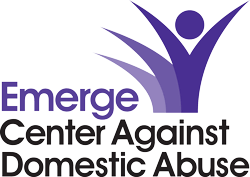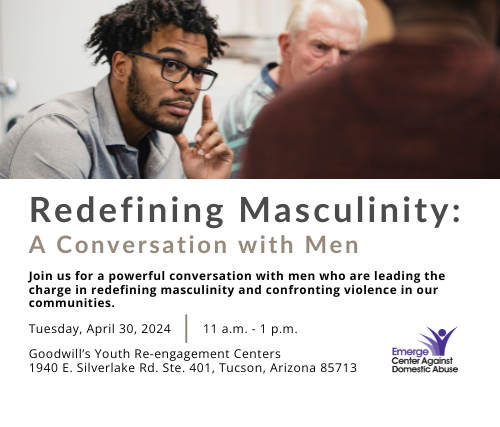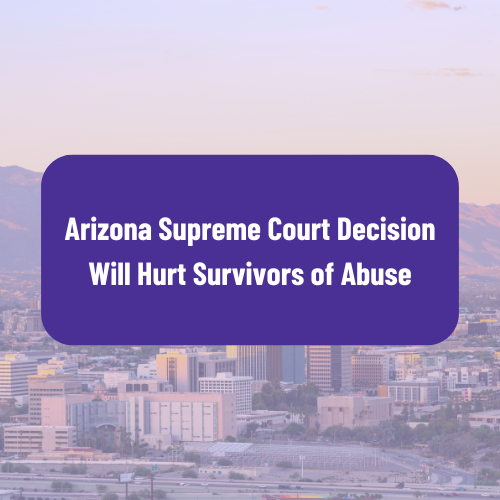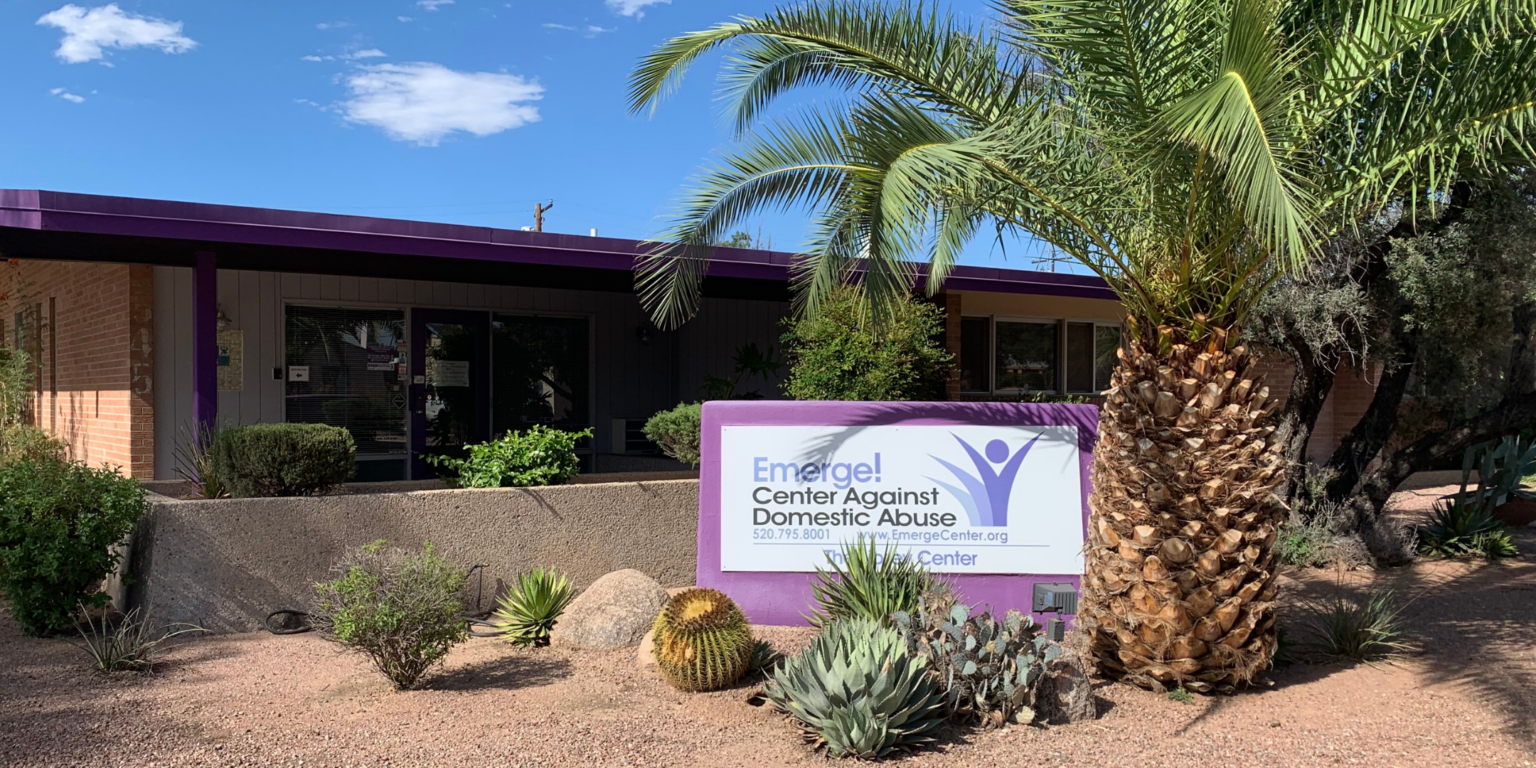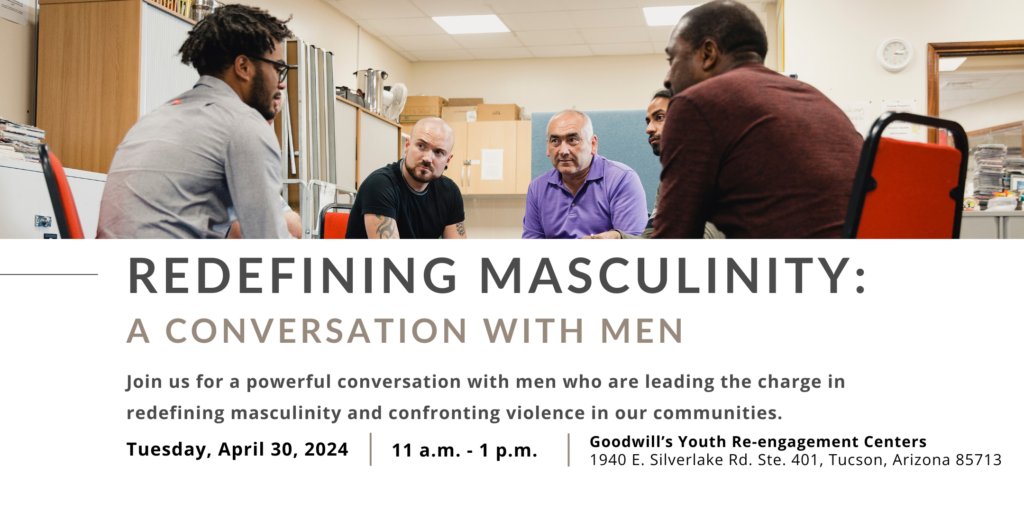
Join us for an impactful dialogue featuring men at the forefront of reshaping masculinity and confronting violence within our communities.
Domestic abuse affects everyone, and it’s crucial that we come together to end it. Emerge invites you to join us for a panel discussion in partnership with Goodwill Industries of Southern Arizona as part of our Lunchtime Insights series. During this event, we’ll engage in thought-provoking conversations with men who are at the forefront of reshaping masculinity and addressing violence in our communities.
Moderated by Anna Harper, Emerge’s Executive Vice President and Chief Strategy Officer, this event will explore intergenerational approaches to engaging men and boys, highlighting the importance of Black and Indigenous men of color (BIPOC) leadership, and will include personal reflections from the panelists on their transformative work.
Our panel will feature leaders from Emerge’s Men’s Engagement Team and Goodwill’s Youth Re-Engagement Centers. Following the discussion, attendees will have the opportunity to engage directly with the panelists.
In addition to the panel discussion, Emerge will provide, we will share updates about our upcoming Generate Change Men’s Feedback Helpline, Arizona’s first helpline dedicated to supporting men who may be at risk of making violent choices alongside the introduction of a brand-new men’s community clinic.
Join us as we work toward creating a safer community for all.
